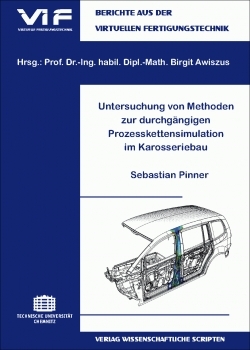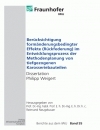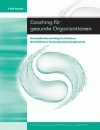| ||||

| ||||
|
Sebastian Pinner Birgit Awiszus (Hrsg.) Untersuchung von Methoden zur durchgängigen Berichte aus der Virtuellen Fertigungstechgnik
212 Seiten, DIN A5, zahlr. Abb., Broschur
ISBN: 9783957350008 Verlag Wissenschaftliche Scripten
Das Bestreben der Automobilindustrie die Kosten für Entwicklung und Prototypenbau neuer Fahrzeugkarosserien weiter zu reduzieren, führt zu der Forderung nach effizienten Simulationswerkzeugen, die dazu beitragen Fertigungsprozesse virtuell abzusichern und eine frühzeitige Produktbeeinflussung aus Fertigungssicht zu ermöglichen. Um die Qualität der Simulationsergebnisse weiter zu optimieren, wird es zukünftig in verstärktem Maße notwendig sein, die Fertigungshistorie bei der Simulation der Fertigungsprozesse und Produkteigenschaften zu berücksichtigen. Im Rahmen dieser Arbeit werden Methoden und Werkzeuge für die Realisierung einer durchgängigen FEM-Simulationsprozesskette (Blechumformung, Schweißen, Lacktrocknung und Crash) betrachtet. Dazu zählt insbesondere eine Untersuchung inverser Solver für die Bereitstellung der Umformhistorie in der frühen Produktentwicklungsphase. Anhand von Praxisbeispielen wird die Ergebnisqualität der durchgängigen Prozesskettensimulation validiert und eine Effizienzbewertung der Übertragung der Fertigungshistorie entlang der Simulationsprozesskette durchgeführt. Die Ergebnisse dieser Arbeit sowie die daraus abgeleiteten Empfehlungen zum Einsatz der Prozesskettensimulation im Anwendungsbereich des Karosseriebaus leisten einen entscheidenden Beitrag zur frühzeitigen Absicherung der fertigungsgerechten Produktgestaltung und damit zur Kostensenkung im Produktentwicklungsprozess neuer Fahrzeuge.
| ||||
|
| ||||




